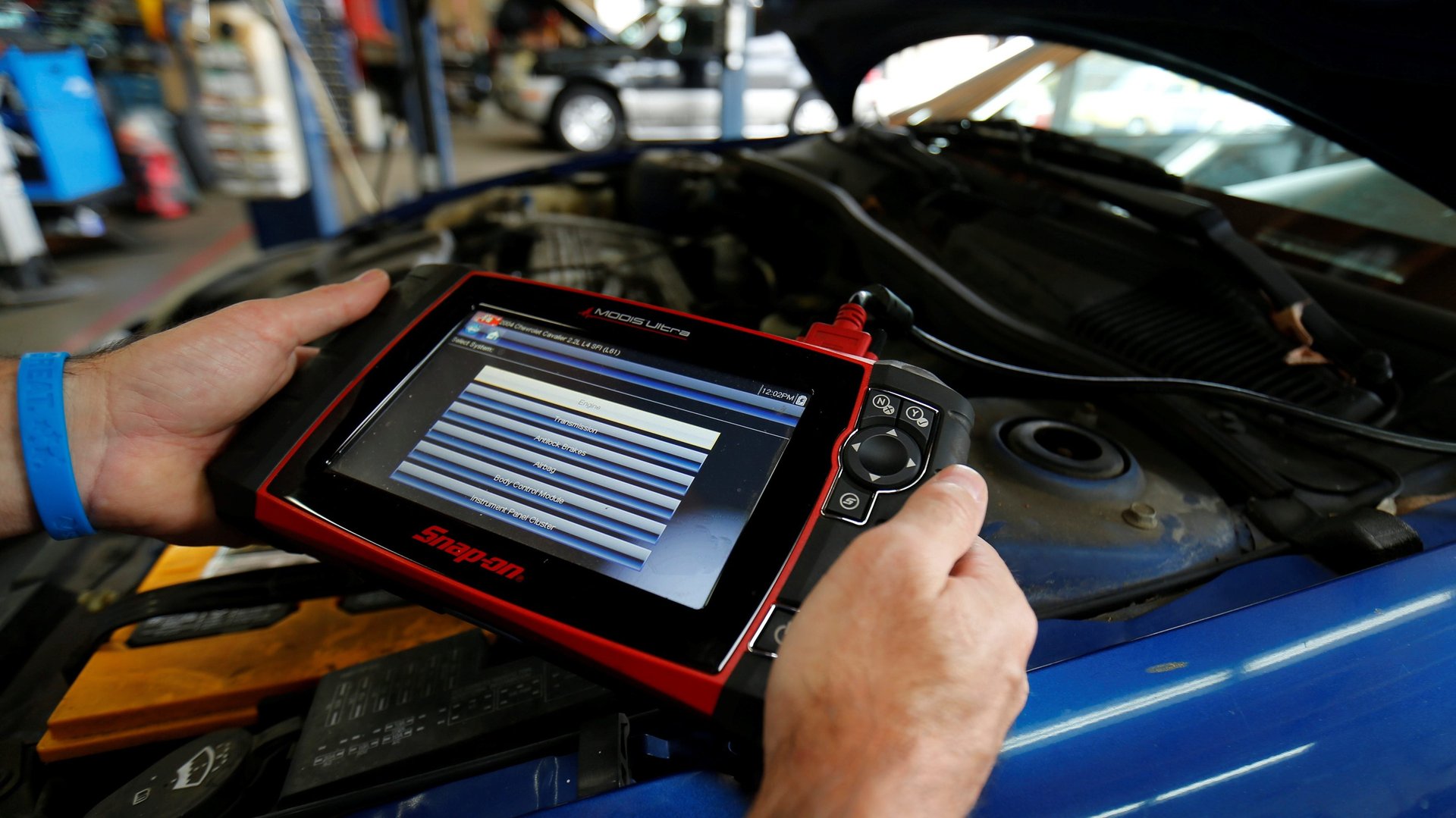Americans are a step closer to enshrining the right to repair their own gadgets
On election day, Americans cast their votes not just for their next president, but also a slew of state- and city-scale ballot measures. Some of them are refreshingly weird, from a referendum on the future of the gray wolf in Colorado to the decriminalization of magic mushrooms in Washington DC.


On election day, Americans cast their votes not just for their next president, but also a slew of state- and city-scale ballot measures. Some of them are refreshingly weird, from a referendum on the future of the gray wolf in Colorado to the decriminalization of magic mushrooms in Washington DC.
But a far more boring-sounding ballot measure passed in a landslide in Massachusetts—and it has serious implications for US consumers’ ability to fix their gadgets when they break.
By a three-to-one margin, Massachusetts voters declared that car owners should have broad access to the data generated by their machines’ onboard computers. As cars have become increasingly computerized, that data has become a crucial tool mechanics use to diagnose problems and prescribe repairs. Newer models automatically send troves of data to their manufacturers, which gives dealership-certified mechanics an upper hand over independent shops in the $63 billion auto repair market—and the ability to charge consumers higher prices for tune-ups. GM, Toyota, Ford, Honda, and Nissan spent at least $25.8 million to oppose the measure.
In an increasingly digitized world, carmakers have found themselves facing similar pressure to turn data over to consumers as social media platforms like Facebook. And in Massachusetts, they’ve faced similar complaints about data monopolies as Google. “You can see that the opportunities for monopolization are there,” said Gay Gordon-Byrne, executive director of The Repair Association. “You get to keep people from fixing their stuff, which drives them to buy new, or it drives them to buy your overpriced exclusive services to point where you say, ‘Oh, screw it, I’ll just buy new one.'”
It’s not just the digital life of cars that stands to be impacted by Massachusetts’ decision. The win could bolster efforts to pass laws in other states covering everything from smartphones to tractors.
State legislatures have taken up dozens of bills in recent years, but so far, none have passed. Gordon-Byrne said the 2020 legislative session seemed promising, with several state bills that could push repair protections beyond cars. “The pandemic shot that, along with everything else, all to hell,” she said. “But this is a huge piece of encouragement about whether people want to fix their own stuff, and the answer is they really do.”
Starting in 2022, the new state law requires new car models to come with an app that gives consumers control over their own telemetric data, a broad category of information that includes everything from tire pressure to location, speed, and idling time. Car owners would be able to use the data to identify problems themselves, or turn it over to any mechanic they trust.
Regardless of legislative changes in other states, the Massachusetts result is likely to have national implications. When the state passed a similar measure in 2012, requiring automakers to give the public access to parts and manuals they’d need to do their own repairs, industry groups agreed to follow the Massachusetts law across the US.
“As of right now, Massachusetts [car owners] will have access to data that no one else has, but that’s a very hard thing to keep within a state border,” said Gordon-Byrne. Cars and consumers, after all, pass freely between US states. Gordon-Byrne predicts automakers will choose to follow the rule across the country for the sake of keeping legal compliance simple.